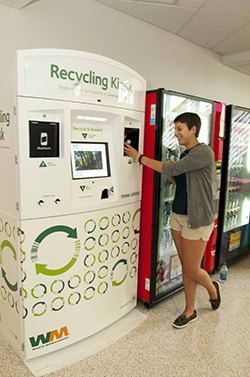Apple users were recently subject to possible software hacking due to security breech concerns in February, which has led to further product protection concerns.
An update to Apple’s iOS software for its iPhones, iPads and iPods released in February to fix a security issue that existed for a number of months, covered up the vulnerability that should have encrypted information on the Apple devices emails, social media information and financial information.
This breach of security could have allowed hackers to obtain personal information sent through insecure networks, such as the wifi in public coffee shops, ice cream shops or gyms.
Apple did not indicate how it became aware of the issue, although Matthew Green, a Johns Hopkins University cryptography professor, said in a Reuters report, “It’s as bad as you could imagine.”
The flaws were patched over by a series of software updates without a sizable number of reported hacks according to nbcnews.com.
Apple has developed a boastful reputation as the safest operating systems on the market, particularly for their desktop and laptop computers, which can safely navigate the internet without an anti-virus system installed. However, the recent security flaw could serve as a warning to Apple users that they should not be lulled into a false sense of security.
Despite the inherent security risks that mobile phones carry, they are a large part of everyday life for college students. As of January, almost 80 percent of college students used a smartphone, according pewinternet.org.
Kretsch explained that sometimes a phone’s security features are not the main issue for keeping a phone safe from any potential threats; rather, most of the time it is contingent upon the type of network the phone is connected to.
“Using a mobile browser for secure transactions isn’t the main security concern…A secure wifi network, such as those on campus and on home systems using a properly configured firewall and reasonable precautions, should be fine,” Kretsch said.
She also warned that “using an unsecured network such as free networks at coffee shops or airports is asking for trouble, as others on the network can intercept transmissions.”
Kretsch added that students should, “follow the same precautions you’d follow on a laptop such as not automatically downloading email attachments or visiting questionable sites,” always keep software up-to-date, and protect their devices with a password. “Yes, it might take you a few extra seconds to get into your phone, but it will give you some short-term protection from others accessing your system,” she said.
Kyle Browne, a criminal justice major, said he always makes sure he protects his phone with a password and refrains from putting a plethora of personal information about himself on social media applications. “If you put your info out there, it can become easier for hackers to access it,” he said. “I use social media, but I don’t check-in at certain locations. You have to be careful about what information you just give to others.”
Dr. Edward Christensen, Vice President for Information Management, said students should “assume that if [info] is on your mobile device, it is public already.”
Christensen believes the best way to protect personal data is to exercise caution when accessing the internet through unsecured networks and to utilize the protection that their phone is already equipped with.
“The weakest link in any technology security is often not the technology but the people who use it,” Christensen said. “Consider that many people share their passwords with ‘trusted’ others, more than half of smartphone owners don’t use a PIN or access locking mechanism.”
Christensen continued, “No [operating system] is inherently safer if it is not kept up-to-date and maintained. For example, worried about battery life and performance, many iPhone users have not updated to iOS 7 at all and thus may have vulnerabilities they are unaware of.”
Another precaution that Christensen warns is that phone users should resist the temptation to “jailbreak” or tamper with their phone’s software to allow it to run more applications. He states that in doing so, the user removes the device’s protection against malware.
The most common form of hacking occurs after a device has been misplaced or stolen, Christensen said. Merely installing a “find my phone” application and utilizing a phone’s automatic lock password can help reduce the risk of having any personal information compromised from a lost phone, he added.
Jennifer Zuczek, a sophomore chemistry major, said she does not save any passwords for her social media accounts on her phone, therefore in the event her phone is ever stolen she does not have to worry about anyone remotely accessing any personal information from her accounts.
“I never really thought about doing it because of hacking. It just seems like common sense to not save your passwords so no one can get into your profiles and your online accounts in case you lose your phone,” Zuczek said.
As mobile technology continues to grow, Kretsch said that as long as users remain prudent with what they share and how they protect their data they should remain as safe as they can from hackers trying to access their devices.
“Mobile devices are safer than they were in the past but those who make it their job to break into the previously unbreakable have also become more sophisticated,” said Kretsch. “The key always comes down to the precautions users take to use their devices where it is safe, to be smart about what they transmit and how well the users evaluate what they allow onto their devices and how up-to-date they keep their devices.”
IMAGE TAKEN from apple.com




